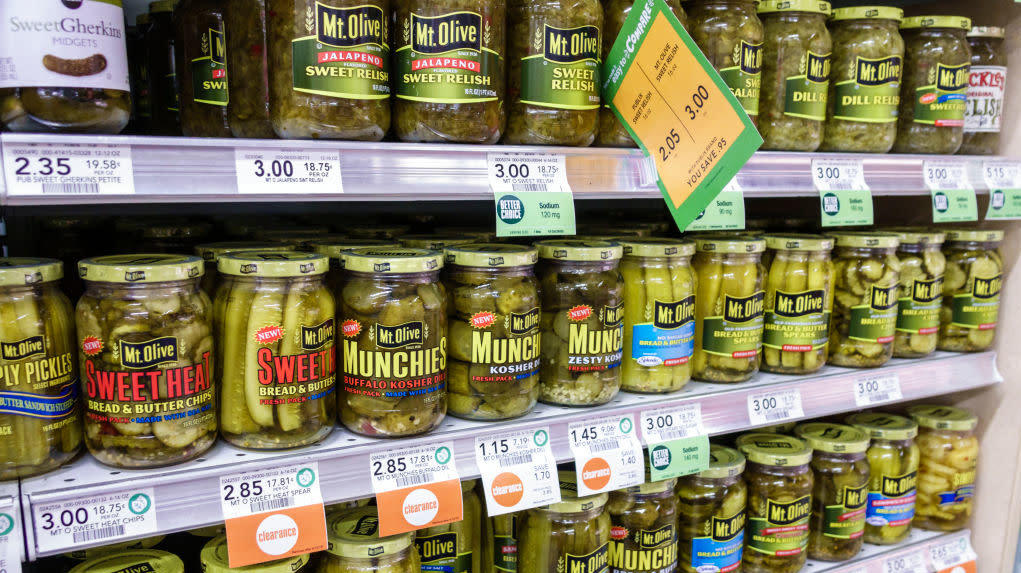You Gherkin' My Chain? Pickle Juice Probably Doesn't Affect Athletic Performance
Athletes do all kinds of weird things to improve their performance. Mike Bibby used to clip his fingernails on the bench, while Michael Phelps ate a full-ass pound of pasta for lunch while training for the Rio Olympics. Personally, I start every single distance run with Marvin Gaye's "Got To Give It Up." But Kansas City Chiefs wide receiver Tyreek Hill made headlines back in December after he was seen drinking a mysterious green liquid on the sidelines. The liquid in question was pickle juice—but studies show that it may not have much of an effect on athletic performance.
At the time, Patrick Mahomes told reporters that Hill's pickle juice habit prevented him from cramping up. "That was the ol' pickle juice, man," Mahomes said. "You know, he was cramping up a little bit, so you've got to give him the pickle juice to get him back to the 'cheetah.'" According to Insider, pickle juice has been an NFL-wide cramp remedy for years. For example: in 2000, the Philadelphia Eagles drank pickle juice to combat high temperatures in a game against the Dallas Cowboys—a game now referred to as the "Pickle Juice Game."
Pickle juice's cult status in the NFL has sparked several studies. Insider cited one 2015 study by Northeastern University which concluded that pickle juice had no effect on the concentration of electrolytes in the blood of athletes. Researchers at North Dakota State University did produce a small study in 2010 that found pickle juice helped reduce cramp duration in participants—but it could've been a fluke, since a later study involving one of the same scientists concluded that pickle juice didn't increase athletic performance in any meaningful way. The researchers wrote: "Ingesting small amounts of PJ (pickle juice) or hypertonic saline with water did not affect performance or select thermoregulatory measures."
So, will pickle juice stop cramping? Probably not. Is it a fun, quirky, devil-may-care sideline tradition/superstition? Totally. As far as athletes' strange gameday traditions go, this one really isn't that big of a dill.
